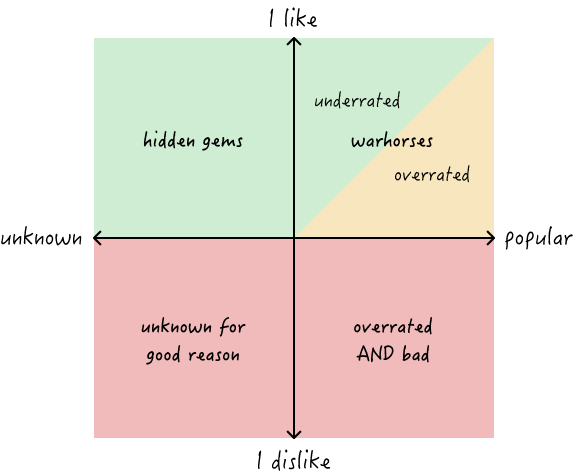pianoloverus Why does being popular makes a piece undesirable for you?
At risk of oversimplifying, I present this highly (un)scientific framework I follow when deciding whether to learn a piece:

I guess if you think of pieces as falling into a 2x2 where one axis is popularity with the public and the other axis is how much I like it, by definition I'd want to play either pieces that are (popular with public, I like) or (unknown by public, I like).
If it's a super popular piece, plenty of people are playing it already so it doesn't need me to be an advocate for the piece, so unless I also love it I'm not going to go out of my way to learn it. Also, just by virtue of being so popular, something that's reached normie-level popularity has a higher chance of being overrated in my book because honestly, what are the chances that piece also landed in my own top 10? Of course, that won't stop me from enjoying listening to other people play it, but I think we've all got pieces that we think don't deserve nearly the level of popularity they enjoy — for me, it's Chopin's Fantaisie-Impromptu.